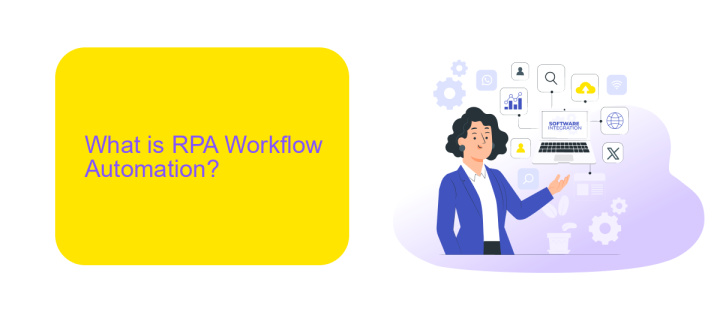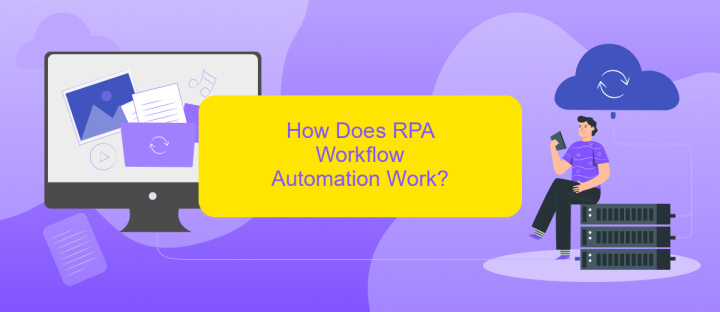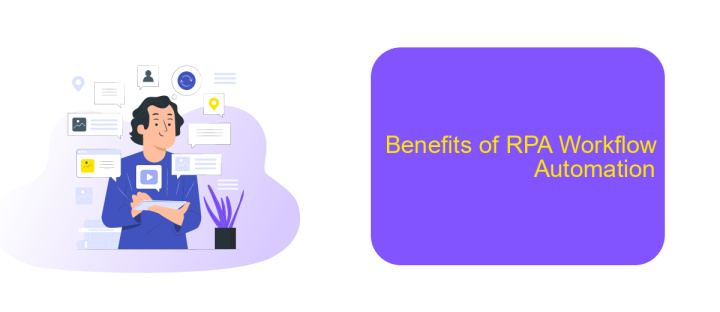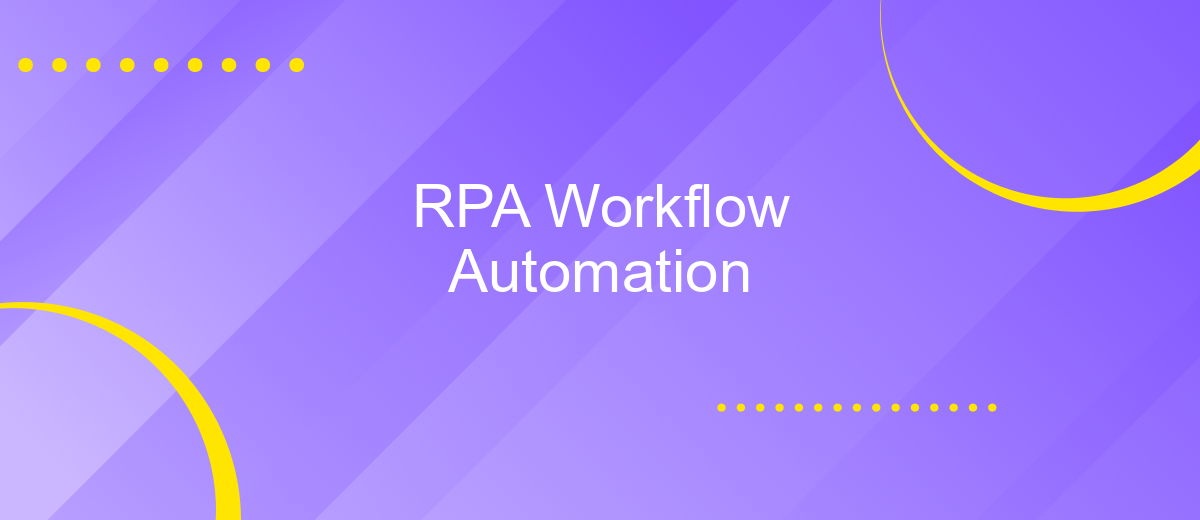RPA Workflow Automation
Robotic Process Automation (RPA) workflow automation is revolutionizing the way businesses operate by streamlining repetitive tasks and enhancing efficiency. By leveraging advanced software robots, organizations can automate mundane processes, reduce human error, and free up valuable time for employees to focus on more strategic activities. This article explores the transformative impact of RPA on modern workflow management and its potential benefits for various industries.
Introduction
Robotic Process Automation (RPA) Workflow Automation is revolutionizing the way businesses operate by automating repetitive tasks and streamlining processes. This technology allows organizations to enhance efficiency, reduce errors, and save valuable time and resources.
- Automated data entry and processing
- Seamless integration with existing systems
- Enhanced accuracy and compliance
- Scalability and flexibility in operations
One of the key components in achieving successful RPA workflow automation is the integration of various systems and applications. Services like ApiX-Drive facilitate this by providing easy-to-use tools for connecting different platforms, ensuring smooth data flow and operational continuity. By leveraging such services, businesses can maximize the potential of their RPA solutions and drive significant improvements in productivity and efficiency.
What is RPA Workflow Automation?

RPA Workflow Automation refers to the use of Robotic Process Automation (RPA) technology to streamline and automate business processes. By deploying software robots or "bots," organizations can handle repetitive, rule-based tasks with high efficiency and accuracy. These bots interact with digital systems and applications just like a human would, but they can operate 24/7 without fatigue, significantly increasing productivity and reducing operational costs.
One of the key advantages of RPA Workflow Automation is its ability to integrate with various systems and applications seamlessly. Tools like ApiX-Drive facilitate this integration by allowing businesses to connect different software and automate data transfer between them. This not only speeds up workflows but also minimizes the risk of errors associated with manual data entry. As a result, companies can focus more on strategic tasks that require human intelligence, thereby enhancing overall business performance.
How Does RPA Workflow Automation Work?

RPA (Robotic Process Automation) Workflow Automation streamlines business operations by automating repetitive tasks. It involves software bots that mimic human actions to perform rule-based processes, enhancing efficiency and accuracy. The automation journey begins with identifying processes suitable for automation and designing a workflow that outlines the steps the bot will take.
- Identify and document repetitive tasks.
- Design the workflow for the RPA bot.
- Develop and configure the RPA bot using RPA tools.
- Test the bot to ensure accuracy and efficiency.
- Deploy the bot in the live environment.
- Monitor and maintain the bot for continuous improvement.
Integration with other systems is crucial for RPA to function seamlessly. Tools like ApiX-Drive facilitate this by allowing easy configuration of integrations without extensive coding. ApiX-Drive connects various applications, ensuring that data flows smoothly between systems, thereby enhancing the overall efficiency of the automated workflow.
Benefits of RPA Workflow Automation

Robotic Process Automation (RPA) Workflow Automation offers numerous advantages for businesses aiming to enhance their operational efficiency. By automating repetitive and mundane tasks, companies can significantly reduce human error and improve accuracy.
One of the key benefits of RPA is its ability to streamline processes, allowing employees to focus on more strategic activities. This not only boosts productivity but also enhances job satisfaction as workers engage in more meaningful work.
- Increased efficiency and speed
- Cost savings through reduced labor expenses
- Enhanced accuracy and reduced errors
- Improved compliance and audit trails
- Scalability and flexibility in operations
Additionally, integrating RPA with other systems and services, such as ApiX-Drive, can further optimize workflows. ApiX-Drive facilitates seamless integration between various applications, ensuring that data flows smoothly across platforms. This integration capability allows businesses to create a cohesive, automated ecosystem that maximizes the benefits of RPA.
Challenges of RPA Workflow Automation
Implementing RPA workflow automation presents several challenges that organizations must navigate. One primary issue is the complexity of integrating RPA tools with existing systems and applications. Many legacy systems are not designed for seamless integration, requiring significant customization and configuration. Additionally, ensuring that the RPA bots operate efficiently without disrupting existing workflows can be a daunting task. Organizations often face difficulties in maintaining the stability and performance of these automated processes, especially when dealing with large-scale operations.
Another significant challenge is the ongoing maintenance and scalability of RPA solutions. As business processes evolve, RPA workflows must be continuously updated and optimized to reflect these changes. This requires a robust strategy for monitoring and managing the performance of RPA bots. Furthermore, security concerns also arise, as automated processes can become targets for cyber-attacks. Utilizing services like ApiX-Drive can mitigate some of these issues by providing reliable integration solutions and facilitating the seamless connection of various systems, thereby enhancing the overall efficiency and security of RPA workflows.
- Automate the work of an online store or landing
- Empower through integration
- Don't spend money on programmers and integrators
- Save time by automating routine tasks
FAQ
What is RPA Workflow Automation?
How does RPA Workflow Automation benefit businesses?
What types of tasks can be automated using RPA?
How do I get started with RPA Workflow Automation?
Is RPA Workflow Automation secure?
Time is the most valuable resource for business today. Almost half of it is wasted on routine tasks. Your employees are constantly forced to perform monotonous tasks that are difficult to classify as important and specialized. You can leave everything as it is by hiring additional employees, or you can automate most of the business processes using the ApiX-Drive online connector to get rid of unnecessary time and money expenses once and for all. The choice is yours!


